About This Project
📘 In tonight’s study, we’re diving into Exodus chapter 20, specifically focusing on what God reveals about worship. Imagine standing with the ancient Israelites as they witness the awe-inspiring displays of Thunder, Lightning, and the sound of the Trumpet—a moment of divine encounter that leaves them trembling in reverence.
🌩️ Explore the spectrum of Torah instructions with us, from the unshakable principles of the Ten Commandments to the nuanced guidance on justice, faithfulness, and purity. We’re not just reading words written millennia ago; we’re unlocking spiritual insights that speak directly to our lives today.
🔍 But wait, there’s more! We’re not shying away from the tough questions or controversial topics. Join us as we tackle head-on the criticisms, misconceptions, and challenging passages that often leave readers scratching their heads.
💡 Discover how these ancient laws and stories still hold incredible relevance for our modern lives. Gain fresh perspectives on historical context, biblical interpretation, and the transformative power of the gospel message.
🚀 If you’ve found our discussions enlightening and enriching, show your support by hitting the like button, subscribing, and ringing the notification bell. Don’t miss out on future episodes filled with profound insights, engaging discussions, and inspiring revelations.
Get ready to dive deep into God’s Word like never before. Buckle up, grab your Bible, and let’s embark on this exhilarating journey of faith together! 🌌✨
☑️ You can partner with us to get the message out with a one-time gift at Tim Hatch Live Support OR on the Cash App with cashtag: $timhatchlive
💥 Become a monthly partner and enjoy loads of exclusive channel perks at Tim Hatch Live Patreon
✳20% of all giving will be tithed back out to The American Bible Society and Project Rescue.
Start [0:00]
▶ Introduction [0:30]
▶ Recap of the Spectrum of Torah’s Instruction [1:17]
▶ How God wants us to approach Him [3:50]
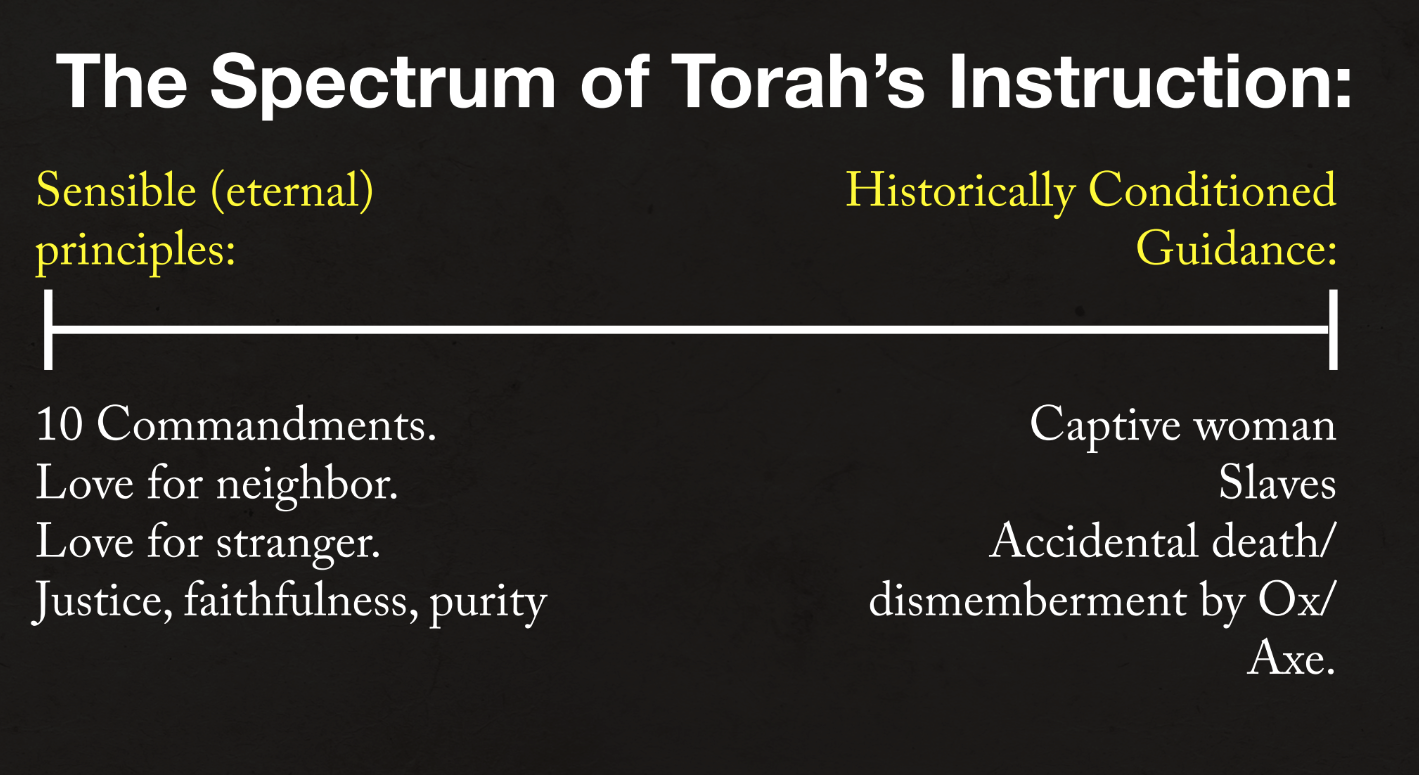
Key Verse:
Matthew 22:37–40 (ESV) And he said to him, “You shall love the Lord your God with all your heart and with all your soul and with all your mind. 38 This is the great and first commandment. 39 And a second is like it: You shall love your neighbor as yourself. 40 On these two commandments depend all the Law and the Prophets.
The Eternal Problem. God is holy, we are not. We need a mediator.
The Worship of the Lord Our God : Understanding WORSHIP through Torah
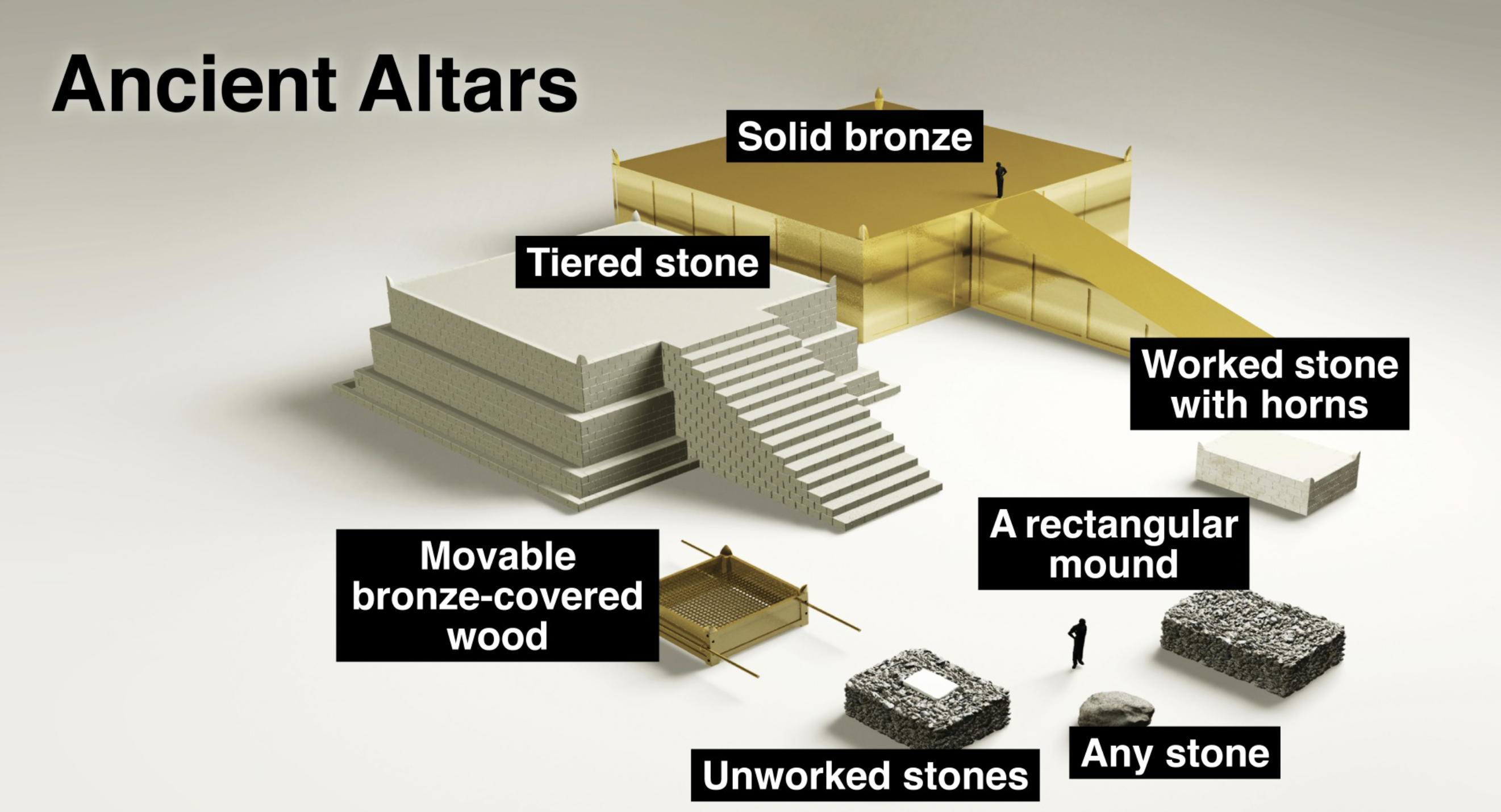
Laws about approaching God:
Exodus 20:22–26 (ESV) And the Lord said to Moses, “Thus you shall say to the people of Israel: ‘You have seen for yourselves that I have talked with you from heaven. 23 You shall not make gods of silver to be with me, nor shall you make for yourselves gods of gold. 24 An altar of earth you shall make for me and sacrifice on it your burnt offerings and your peace offerings, your sheep and your oxen. In every place where I cause my name to be remembered I will come to you and bless you. 25 If you make me an altar of stone, you shall not build it of hewn stones, for if you wield your tool on it you profane it. 26 And you shall not go up by steps to my altar, that your nakedness be not exposed on it.’
1.No imposing your imagination on God.
Psalm 135:15 (ESV)The idols of the nations are silver and gold, the work of human hands.
Deuteronomy 16:21–22 (ESV) “You shall not plant any tree as an Asherah beside the altar of the Lord your God that you shall make. 22 And you shall not set up a pillar, which the Lord your God hates.
Exodus 20:22–24 (ESV) And the Lord said to Moses, “us you shall say to the people of Israel: ‘You have seen for yourselves that I have talked with you from heaven. 23 You shall not make gods of silver to be with me, nor shall you make for yourselves gods of gold. 24 An altar of earth you shall make for me and sacrifice on it your burnt offerings and your peace offerings, your sheep and your oxen. In every place where I cause my name to be remembered I will come to you and bless you.
2.Stay grounded.
Exodus 20:22–24 (ESV) And the Lord said to Moses, “us you shall say to the people of Israel: ‘You have seen for yourselves that I have talked with you from heaven. 23 You shall not make gods of silver to be with me, nor shall you make for yourselves gods of gold. 24 An altar of earth you shall make for me and sacrifice on it your burnt offerings and your peace offerings, your sheep and your oxen. In every place where I cause my name to be remembered I will come to you and bless you. 25 If you make me an altar of stone, you shall not build it of hewn stones, for if you wield your tool on it you profane it.
3.Stay focused on God.
Focused Worship: Be mindful not to worship worship!
Is not a performance. Is not what you bring to the table. Is not about separation based on class.
Exodus 20:25–26 (ESV) 25 If you make me an altar of stone, you shall not build it of hewn stones, for if you wield your tool on it you profane it. 26 And you shall not go up by steps to my altar, that your nakedness be not exposed on it.’
4. Stay Clothed
Isaiah 61:10 (ESV) I will greatly rejoice in the Lord; my soul shall exult in my God, for he has clothed me with the garments of salvation; he has covered me with the robe of righteousness, as a bridegroom decks himself like a priest with a beautiful headdress, and as a bride adorns herself with her jewels.
Colossians 3:12–14 (ESV) Put on then, as God’s chosen ones, holy and beloved, compassionate hearts, kindness, humility, meekness, and patience, 13 bearing with one another and, if one has a complaint against another, forgiving each other; as the Lord has forgiven you, so you also must forgive. 14 And above all these put on love, which binds everything together in perfect harmony.
Questions for Further Study:
- How does the awe-inspiring encounter of the ancient Israelites with God’s manifestation through thunder, lightning, and the sound of the trumpet impact your perception of worship today?
- Discuss the spectrum of Torah instructions highlighted in the study, from the unchanging principles of the Ten Commandments to the contextual guidance on justice, faithfulness, and purity. How do these teachings relate to your life experiences?
- How can we approach the tough questions, criticisms, and challenging passages in the Bible with a mindset of faith and understanding, especially in today’s context?
- Reflect on the importance of staying grounded, focused, and “clothed” in worship, as discussed in the study. How do these principles shape your personal worship life and interactions within your Christian community?
- In what ways can the insights gained from this study about approaching God and engaging in worship be applied practically in our daily lives and interactions with others?
⬇️ Tim Hatch Live ⬇️
🎙 The Deep End dives deeper into Faith, Politics, Bible, & the world, Tues 7:30p & on your favorite podcast app
📖 Deep Dive Bible Study Kings of Compromise, Weds 7:30p
❓10 Questions with Tim, Q&A segment providing answers, LIVE 1st Thurs, Noon
👉 Ask Anything email ask@timhatchlive.com
🔵 WATCH MORE
🔵 BOOKS
🔵 SWAG
🔵 RUMBLE
🔵 FACEBOOK
🔵 TWITTER
🔵 INSTAGRAM
🔵 TIKTOK





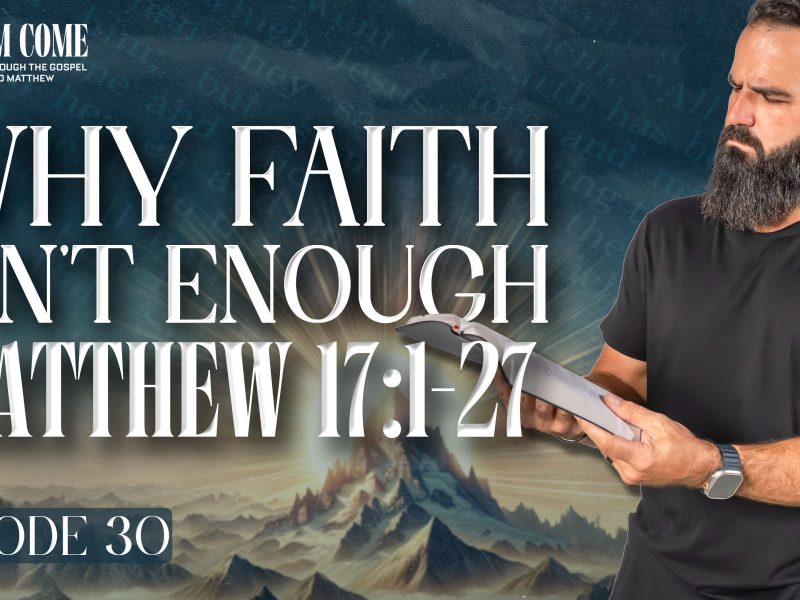
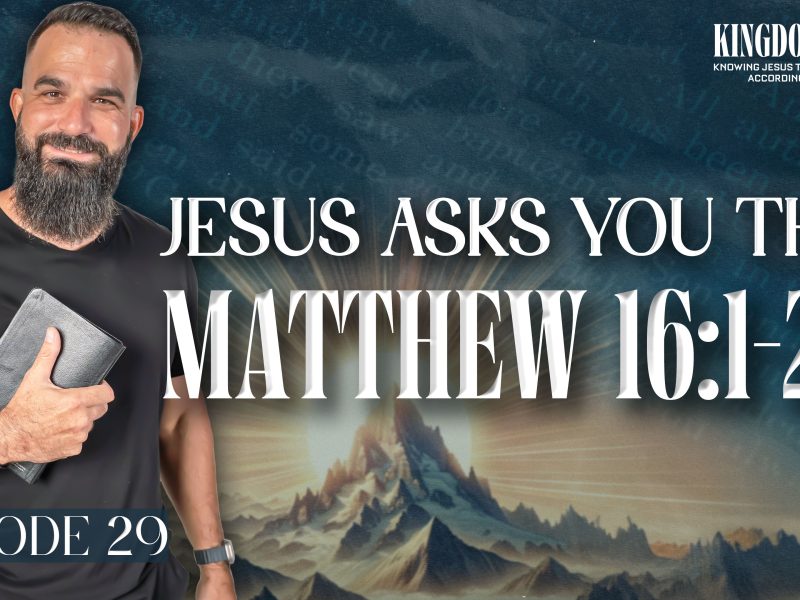
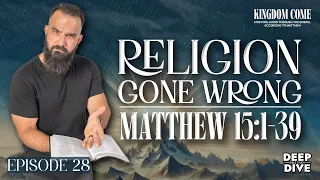
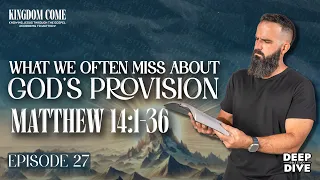
No Comments